President Joe Biden meets with Iraqi PM Mohammed Shia Al-Sudani amid growing tensions in Middle East
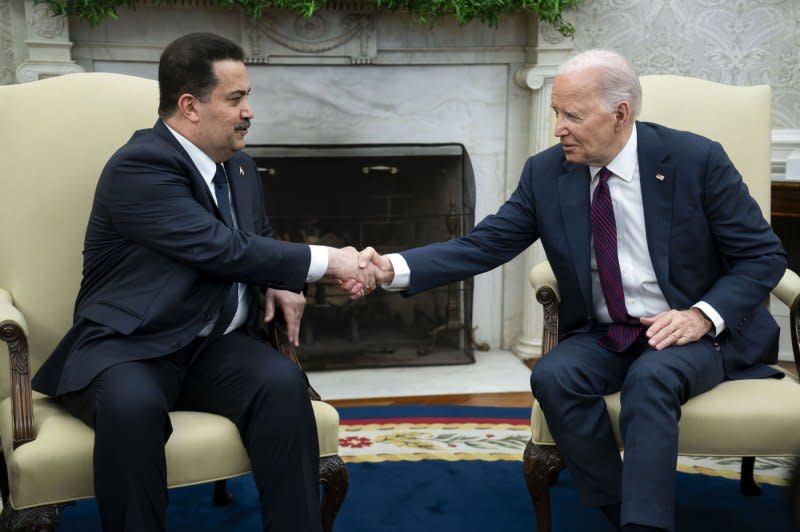
- Oops!Something went wrong.Please try again later.
April 15 (UPI) -- President Joe Biden met with Iraqi Prime Minister Mohammed Shia Al-Sudani at the White House on Monday to discuss the future of 2,500 U.S. troops stationed there amid renewed ISIS threats and growing tensions in the Middle East.
Before heading into Monday's bilateral meeting with Al-Sudani, Biden acknowledged Iran's weekend attack and vowed the United States will "defend Israel."
"The United States is committed to Israel's security," Biden told reporters before the meeting. "We're committed to a cease-fire that will bring the hostages home and prevent any conflict from spreading beyond what it already has."
"We're also committed to the security of our personnel and partners in the region, including Iraq," Biden added. "The partnership between Iraq and the United States is critical. We've seen over the last decade as our troops have served side by side to help defeat ISIS, and we've seen this in our Strategic Framework Agreement, as well."
The prime minister thanked the president for the meeting, which he said "comes at a sensitive time," as he referenced Saturday's attack by Iran that launched more than 300 drones at Israel, according to Israeli defense officials.
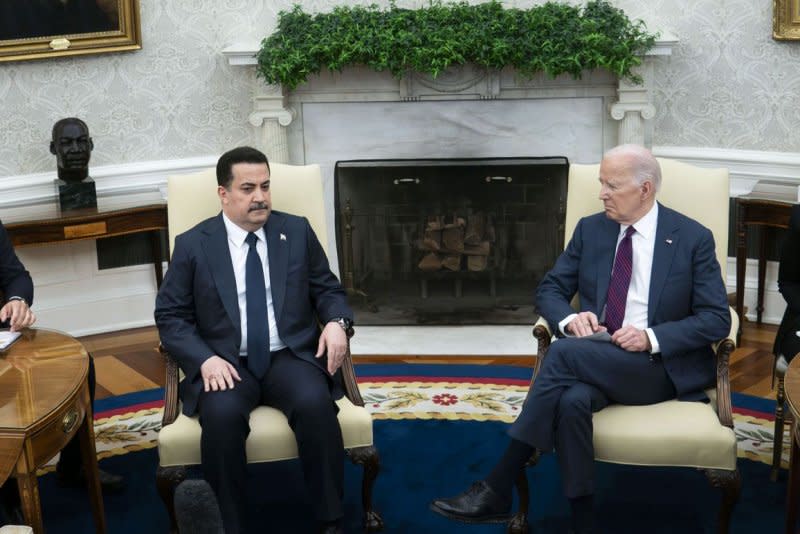
Israel has been at war with Hamas in Gaza for more than six months, after Hamas attacked Israel on Oct. 7, killing some 1,200 people and taking hundreds of others hostage. More than 33,000 people have died in the Palestine territory since the war started, according to the Gaza Ministry of Health.
"We're actually very eager about stopping this war which claimed the life of thousands of civilians -- women and children," Al-Sudani said. "And we encourage all the efforts about stopping the expansion of the area of conflict, especially the latest development. And we encourage all -- for restraints and to protect the safety and security of the region."
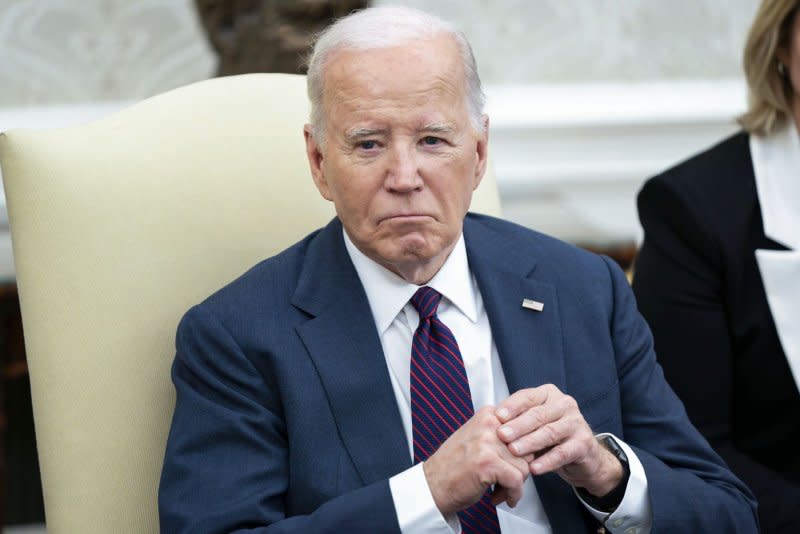
The Iraqi prime minister also called for the world to "respect international humanitarian law" and "protect the law of war," before he shifted focus to the agenda of Monday's meeting, which was to transition a military security-based relationship between Iraq and the United States to an "economic, political, environmental, educational and security partnership," according to the Strategic Framework Agreement.
"The war against ISIS/Daesh formed the foundation of our relations over the course of the past decade. Mr. President, we have fought together and we have achieved victory together," said Al-Sudani.
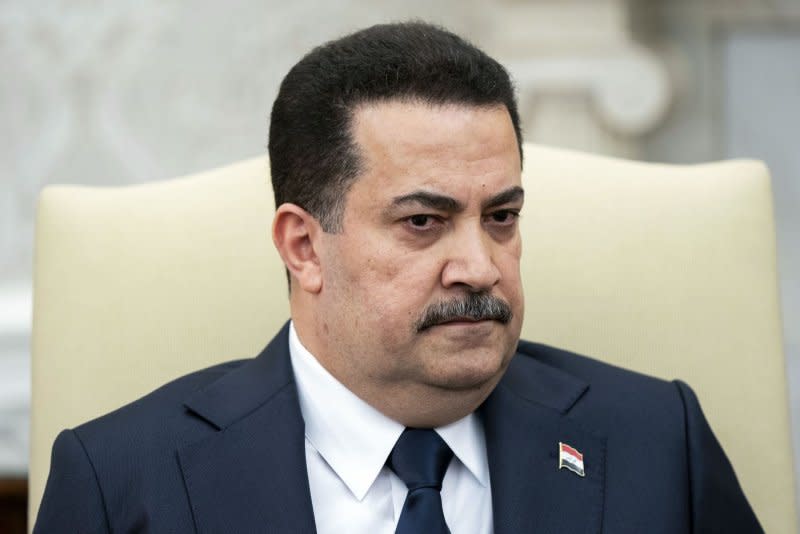
"And we have achieved a remarkable victory thanks to the sacrifices of the Iraqi people and the unity of all the components and the support of the international community and the global coalition," the Iraqi prime minister added.
The two leaders planned to discuss whether 2,500 U.S. troops should remain stationed in Iraq to counter ISIS. The United States invaded Iraq in 2003 to take down Saddam Hussein's regime. U.S. troops returned in 2014 at the request of Iraq to defeat ISIS.
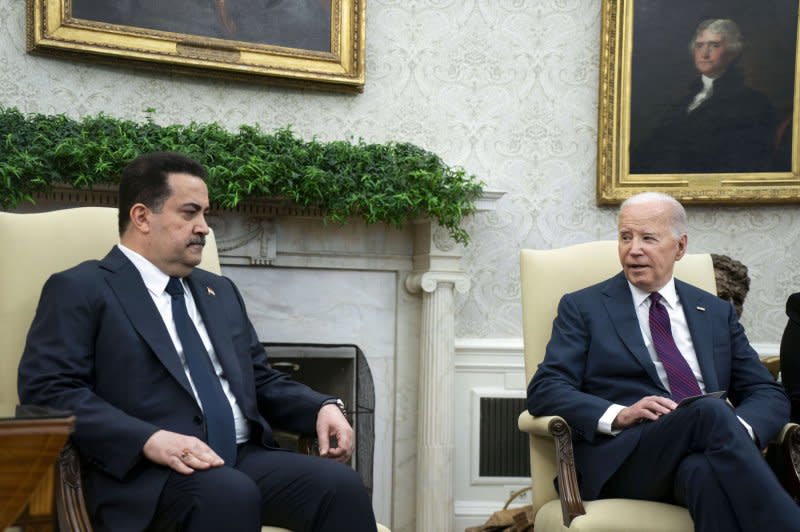
While the mission was mostly successful, the Afghanistan branch of the extremist group ISIS-K has re-emerged following the chaotic U.S. withdrawal from Afghanistan in 2021.
In addition to determining the future of thousands of U.S. troops still stationed in Iraq, the two leaders also discussed business investment in Baghdad, as well as energy security.
"Mr. President, I came today carrying the concerns of my people, who aspire for services of prosperity," Al-Sudani said.
"And -- but that -- that does not mean that we forget about our humanitarian relationship, about what's happening in the region."

